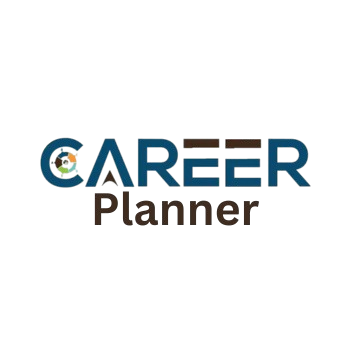
Making a career change can feel daunting, but there’s one simple trick to make it smoother: the informational interview. If you’re considering switching fields, talking to people already working in your desired industry is one of the smartest moves you can make.
Trending Searches
- Software Engineering Jobs
- Data and Analytics Jobs
- Business Operations Jobs
- Human Resources and Recruitment Jobs
- Sales Jobs
- Project Management Jobs
- Account Management Jobs
- Healthcare Jobs
SEARCH ALL JOBS
Informational interviews give you real, firsthand insight into what a job is actually like—what skills matter most, how to position yourself as a strong candidate (even without direct experience), and how to build connections that could lead to future opportunities.
So, how do you set one up? What questions should you ask? And how can you make the most of what you learn? This article breaks it all down.
What Is an Informational Interview?
An informational interview is a casual, one-on-one chat with someone in a job or industry you’re curious about. The goal isn’t to ask for a job—it’s to learn what the work is really like, which skills are most important, and what career paths exist. Think of it as a research tool that gives you insights you won’t find in job postings or online articles.
Unlike a traditional job interview, there’s no pressure to sell yourself. Instead, you’re there to ask questions, gather advice, and hear personal experiences. These conversations help you uncover industry trends, workplace culture, and even hidden job opportunities you might not have known about.
Why Informational Interviews Make Career Changes Easier
“Informational interviews are one of the most effective ways to help someone considering a career change,” says Jenn Smith, a career coach at The Muse.
They give you a clearer picture of a role or industry—beyond what job descriptions and online research can tell you. You’ll hear directly from professionals about their daily work, the skills they rely on, and the realities of the job. This helps you decide if a career path truly aligns with your interests, strengths, and values before making the leap.
These conversations also help you build connections in your target industry. “They help you tap into the hidden job market, where many roles are filled through referrals before being advertised,” Smith says.
Networking is key to career growth, and real talks with people in the field can lead to mentorship, job leads, and a better understanding of hiring processes.
Plus, informational interviews boost your confidence. Having honest discussions with professionals gives you a better sense of what to expect. “They help you practice discussing your career change to see how it resonates with potential employers,” Smith says. By learning how industry insiders talk about their work, you’ll feel more prepared when it’s time for real job interviews.
How to Find the Right People for Informational Interviews
Finding people to interview might seem tough at first, but you likely have more connections than you think. You don’t need direct contacts—there are plenty of ways to reach out, from leveraging your network to connecting online.
1. Tap Into Your Network
“Start with your existing network—friends, family, former colleagues, or alumni. Someone you know might be in (or connected to) your target field,” Smith says. Let them know you’re exploring a new career and ask if they can introduce you to someone in the industry. A warm introduction makes getting a “yes” much easier.
2. Try Cold Outreach
If you don’t have direct connections, send a polite LinkedIn message. “Search for professionals in your desired company, industry, or role, and use filters to narrow it down,” Smith suggests.
Even cold outreach can feel warmer if you engage first. “Comment thoughtfully on their posts or share their content—it builds familiarity,” she says. “When I was a recruiter, I always noticed when someone genuinely engaged with my posts. If they later asked for an informational interview, I was much more likely to say yes.”
3. Leverage Industry Groups
Beyond LinkedIn, industry groups (Facebook, Slack, professional forums) are great places to connect. “Immerse yourself in discussions before asking for a chat,” Smith says. Active participation builds credibility and makes professionals more open to talking.
How to Ask for an Informational Interview
A well-crafted message makes all the difference. Be thoughtful, clear, and respectful of their time.
Make It Personal
People respond better when they feel you’re genuinely interested in them, not just their job. Mention something specific—their career path, an article they wrote, or a project they worked on. Example:
“I came across your post on [topic] and found it really insightful.”
Be Direct (But Polite)
Clearly state why you’re reaching out:
“I’m considering a career change into [industry] and would love to hear about your experience. If you have 20–30 minutes, I’d really appreciate the chance to ask a few questions.”
Make it easy for them to say yes. Offer flexibility:
“I’m happy to work around your schedule—phone, video, or coffee if you’re local.”
Follow Up (Without Being Pushy)
If you don’t hear back after a week, send a polite follow-up:
“I know you’re busy, so I wanted to check in case my message got buried. I’d still love to connect if you have time.”
If they don’t respond, move on—don’t take it personally.
How to Prepare for an Informational Interview
Good prep ensures you get the most out of the conversation.
Know Your Goals
“Are you exploring a specific role? Company culture? Career paths? Potential referrals?” Smith says. Clarity helps you focus.
Research the Person
Check their LinkedIn, work history, and shared content. This gives you talking points and shows you’ve done your homework.
Prepare Key Questions
Ask open-ended questions like:
- “Can you walk me through your career journey?”
- “What do you wish you’d known when starting out?”
- “What skills are most important in this role?”
- “How would someone with my background break in?”
- “What’s a typical day like for you?”
Avoid transactional questions (e.g., “Are there job openings?” or “What’s your salary?”). Instead, focus on learning.
“Think about what you can give,” Smith says. Offer to connect them with someone in your network or send a thank-you note afterward.
During the Interview
Keep it natural and engaging.
Set the Context
Briefly remind them why you’re there:
“I’m in [current field] but exploring a move into [new field]. I’d love to hear about your experience.”
Build Rapport
Be conversational—ask follow-ups, show appreciation, and take notes (without scribbling nonstop). Active listening matters more than perfect questions.
After the Interview
Reflect on what you learned. Does the career still feel right? Use insights to refine your job search, resume, and LinkedIn.
If you realize the field isn’t for you, that’s okay! Adjust your path and keep exploring.

